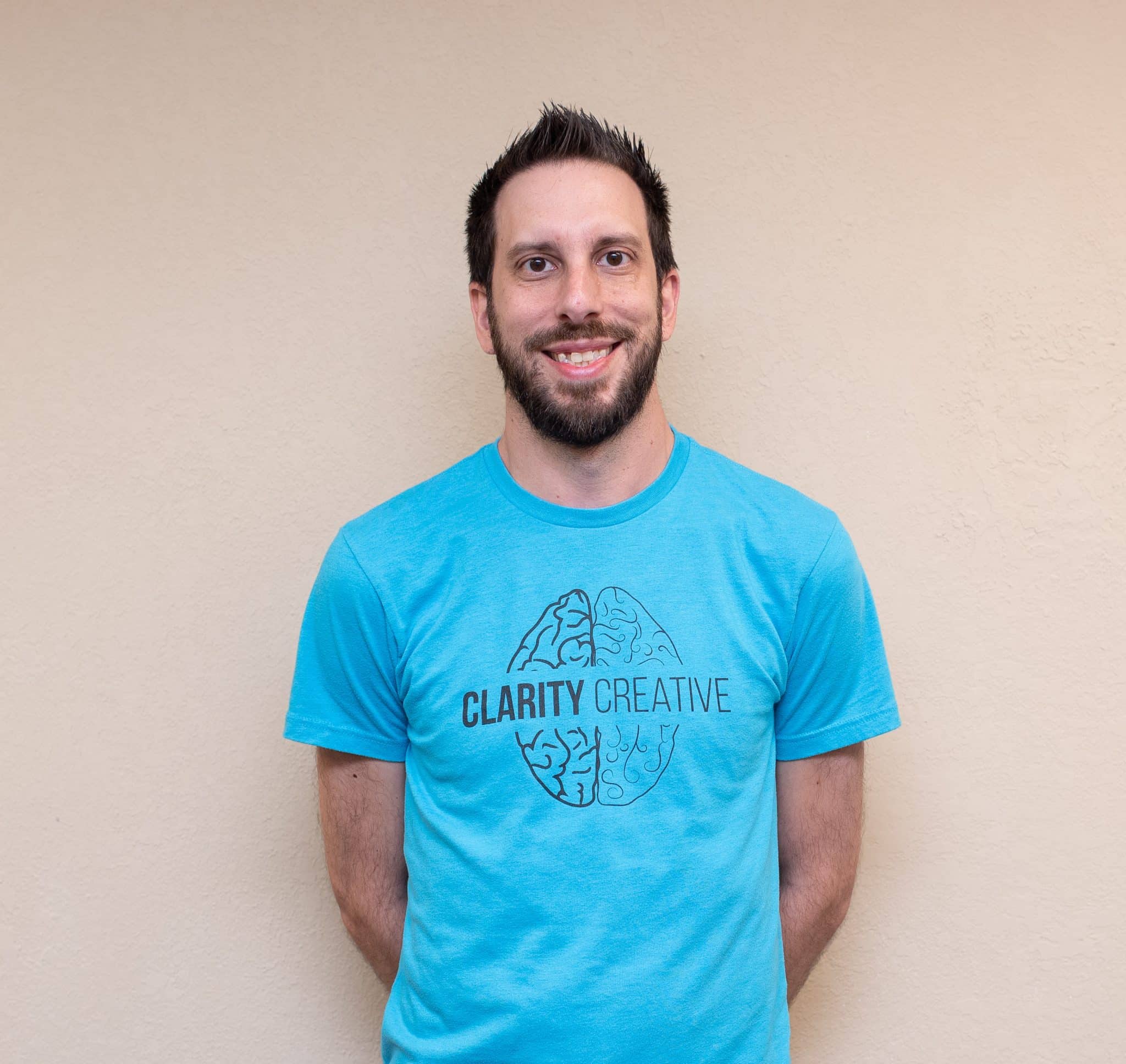It’s our 10th episode! Woohoo! In this episode of the IWantBusiness Podcast, we’re talking about setting goals for your business.
- Our tool of the episode is Remember the Milk, an app to help busy, distracted people cross more items off their to-do list. Put down the Post-Its and step away slowly. You can do better and you deserve better.
- Goals are the focus of this week’s Deep Dive. Why you need them. How to select them. How to keep yourself on track and actually achieve them. You don’t have to get crazy to be successful.
- In our trivia round, the drama ensues as Craig tries to wrest control of the hypothetical trophy. Craig proves his knowledge of basketball, but David doesn’t let him get ahead.
Like what you hear? Take a second to subscribe:
- Subscribe to us on Apple iTunes.
- Listen to us & subscribe on Stitcher or Google Play.
- Follow us on Soundcloud.
Episode Transcript
Craig: Welcome to IWantBusiness the Small Business Podcast, brought to you by Clarity Creative Group. This being our 10th episode, it’s kind of a big deal; we’re gonna have some kind of sound effect of horns. My name is Craig, joined by David.
David: Hey, everybody.
Craig: And our producer extraordinaire, Brian Fritz, of PodcastingDoneRight.com. On this episode, we are chatting about setting goals for your biz. You gotta set goals. But before you set those goals, it’s David’s opportunity to tell you about a Tool of the Episode. He gets very excited about this, to share something that’s gonna help you grow your business. So before we get to goals, what is our tool?
David: Let’s talk tools. So this episode’s tool is called Remember the Milk. I’ve used this tool in years past and it’s a good way to remind yourself to do things, whether it’s make phone calls, set goals, follow up with a goal.
I thought this would be a really good one in a goal-setting episode. It’s less collaborative compared with Asana, where you’re setting tasks for other people. This is really for yourself. And then it’ll remind you—could be every day, could be every week, could be every month—to do stuff, so that way you’re focused on growing your business.
Craig: So is this an app that you’re using?
David: Yeah, there’s a phone app, there’s one for tablets, there’s one for your computer, you can pull it up online. It’s one of those…
Craig: Multi-platform situation.
David: Pretty much everywhere.
Craig: What do you like better about it, vs. I think my fancy iPhone has a reminders thing. What do I use it for?
David: It has a nice list setup, so it’s bit more user-friendly vs. setting up a reminder, as well as the abilities to make it recurring. And then it also gives you a chart at the end of your month or week asking how well you did and how well you were able to stay on your goals. That way you can find out did you hit your goals or not? So it gives an analytical or statistical side of things.
Craig: What are you using it for right now?
David: Currently, I don’t use it.
Craig: (laughing)
David: Only because we use a very collaborative software that we use as a team and I use the collaboration team and you should be happy that I use that one, because it’s a good software.
Craig: (laughing throughout this entire speech)
David: However, Remember the Milk was something I used 5…7, 8, 9, 10 years ago.
Craig: Remember the…
David: Remember the Milk. Probably about 10 years ago…well, maybe 7…
Craig: Spell that for me.
David: Remember the Milk. Remember…the…Milk.
Craig: Milk!
David: Milk. (He pronounces it “melk.”)
Craig: Milk.
David: Milk.
Craig: Milk. (laughs) So a grocery situation. Remember the Milk.
David: Yeah.
Craig: You were going fast and I was like, “Remember the Melk?”
David: All right. RememberTheMilk.com would be the way to go on that. So the really cool part when I was using it years ago before we had a team and we had to collaborate and work with others was really the ability to help me stay on top of things.
Craig: Okay, okay. So it sounds like where we are now for us, we use Teamwork, which is something that’ll probably come up in other conversations. We used to use Asana, we use Teamwork.com now. And it’s kind of a group thing, we have multiple people working on the same projects and everything. And this is more for…you’re on your own. You’re a small business, you just got started. How do you keep those thoughts and ideas together? Am I getting that right?
David: Exactly. So it’s setting those friendly reminders for yourself to know to do things for your business to stay on top of things.
Craig: Instead of Post-It notes all over your house, Remember the Milk.
David: Right, because once you finish with a Post-It note, it doesn’t remind you next month. You need a remind to use the Post-It notes again.
Craig: You need another Post-It to tell you to put that Post-It somewhere you’ll remember.
David: So don’t bother with the Post-Its.
Craig: I used to be a big Post-It guy, not to go too far tangent, and now David’s got me really working on Teamwork, which is that software we use, so I really see the value in Remember the Milk if I was starting a new project, if I was starting something that was just me, where I didn’t have people to collaborate with.
Does it have expandable ways to collaborate or is it really focused on just the individual?
David: You can share your list with others, but it’s more sharing, less collaborating. The way I see it, it’s really just staying on top of things for yourself. It’s a really cool interface, really easy to use. You can search. Again, the idea of this is, as your business is growing, there’s just so much going on, if you don’t have a plan and scheduling things out, so many things go by the wayside, you’re not making that time for that. We know it in terms of our projects.
If we didn’t have something to remind us to do stuff, we would easily forget—whether it’s reaching out to clients or writing a paycheck for ourselves. I have a task in there to do that because, before you know it, it’s the 15th of the month and you haven’t even written yourself your check.
Craig: You really hit it on the head there, because the things you think you’ll remember are the first ones that go. And you’re like, “Oh, I’m gonna remember this! It’s my business, I know what I’m doing.” Yeah, I’m sure you do and you’re keeping everything running, but how many things went along the wayside?
Before you brought me in to using some scheduling software—a mixture of Teamwork, Asana, Google Calendar, these things—I really was kinda in-the-wind, if you will, with a lot of stuff. And things would fall along the wayside and then you find yourself apologizing to people because you can’t keep up with things. Remember the Milk, for a startup or small business getting off the ground, you can schedule tasks, you can have things lined in there for your whole week, your whole month, and that recurring element is kinda huge. Because you have certain tasks, when you’re running a business, that are gonna be important.
Maybe it’s just remembering to make the deposit at the bank the right day. Maybe it’s remembering to order more checks, because if you don’t have checks, you can’t pay your vendors. There’s so many things that, if it slips your mind, it causes another roadblock. And this just helps keep it smooth.
David: And you don’t want something that’s very difficult to put in a task. As much as I like using the iPhone, I found out that when I was trying to put tasks in there, it was cumbersome. It wasn’t easy. Setting the dates was a little slow. And this one has a really cool…you can write it naturally. “I gotta remember to do something today.”
Craig: I like that.
David: And it takes everything that you write and it turns it into a task. It’s just really simple. Good for startups. It got me off the ground, so the way I saw it was it put us toward success, so I think it could help others.
Craig: You touched upon a pretty powerful idea: putting the goals in there. And that really touches on our Deep Dive for today. If you’re using Remember the Milk and you’re putting your goals in there and you’re recurring them so you see them, that’s one of the things that we’re gonna get in to right now.
So we’re gonna go goals. Everyone has heard the word. Everyone knows what it means. Maybe you like soccer. Maybe you like hockey or maybe you’re trying to build a business.
One of the things that happens when you’re growing a business is what I mentioned a couple minutes ago, the wheels are spinning because you’re doing stuff. Whether you’re buying equipment and selling stuff for retail or restaurant, it doesn’t matter. You’re always gonna have something to do.
So if you don’t actually sit down and write a goal out, there’s nothing that’s gonna happen. It’ll never go on the wall, it’ll never go in the app. It’ll never be anywhere. And how would you know what you’re attempting to achieve?
David: Right. Then your business is just there without a set plan. It’d be like running a race without a finish line. You’re just running.
Craig: Where are you going? You’re Forrest Gump-ing it. You just keep going.
David: I mean, he stopped at some point.
Craig: He did. He didn’t have a goal. He just wanted to keep going.
David: He just wanted to keep going, which can be good and bad.
Craig: We all do that, though, in business. We want to grow, we want to keep growing. The funny thing is that word “grow.” Because you’ll say that to a business owner, anybody. “Sure, I wanna grow! Of course I wanna grow my business, I want to make more money.”
But, without a goal, how would you know that you even grew? You’d like around and be like, “Oh, I have an extra employee. Oh, there’s more money.” But setting a goal gives you something attainable to reach.
Would you say that, without a structured goal, whether it be revenue, a profit amount, or even an amount of clients or a certain amount of hours of work you’re doing…it really doesn’t have to be the same thing for everyone, wouldn’t you say?
David: Right. Like hitting a goal on having a certain number of employees for your business. Yeah, I think goals can be seen as success, right? “What does success look like for my business?” What would be that line where I would go, “Oh, this was a good year” vs. “Oh, I think I did good. I don’t know because I didn’t really have a goal set.” So you wouldn’t really know if you were successful or not.
But what would be successful? Maybe it’s a certain number of clients, maybe it’s being able to hire that employee. Maybe it’s being able to get extra equipment. I think when you have that mindset…I wouldn’t even call it “New Age,” or anything like that. But that idea that—if you set a goal, if you write something down, if you put something on paper—it’s mental, it almost…
Craig: It almost makes it real.
David: …Forces it to happen, where I think that if you just say, “I want to have more employees” but never write it down, never even do anything with it, I think at that point, for some reason, you tend to have less of a chance of hitting it…I don’t have a statistic on that, but I know…
Craig: But I completely agree with you, because it even came into our lives. Goal-setting is something that…yeah, you hear about it. You can read about what different successful people do, you can go online and see “what do I do as a business owner?”
And yeah, goals are always in there, and maybe the most neglected thing that small business owners do, especially in the early phase. And the fact is, that’s when you want to set the goal. Maybe your first year, you wanna do $10,000 because it’s a side gig, it’s a thing you’re doing as a hobby. And you hit that. The next year, your goal should probably be more.
And again, that’s up to you, you get to do that. But there’s a couple different ways you can look at goals and one of the things we do is we encourage you to write them down and actually put them somewhere. Now, that could be in a Remember the Milk-type piece of software on your phone. For us, it’s on the wall. We wrote it and we put it on the wall because it’s about accountability. And if you’re able to keep yourself accountable in a business, you can move forward. You can grow and those goals can become…
I know that word has that connotation, you know, “goal, goal!” It becomes your success.The goal becomes your success.
So one big key that I want to touch on is simplifying your goals. They don’t have to be these in-depth, complicated things. They can be big-picture things.
I’m gonna give you an example. Steve Jobs. Pretty familiar with this guy…
David: I’ve heard his name a few times.
Craig: “I want to put the power of a computer in your pocket.” It’s not that it’s a paragraph of words, it’s not even about billions of dollars. He had this goal to take technology to a different place. Henry Ford wanted to make the automobile available to all people, using the assembly line to do that.
So they don’t have to be these incredibly complex goals. I don’t know what your industry is, per se, but I know what we have. We do web and online marketing, which can get very complex. So I’m not saying I want to get this particular click-through rate for a client that does this, and all these metrics. We wanted to do, for us, hit certain amount of clients that we’re dealing with, certain numbers of revenue, and certain profits.
David: Big picture.
Craig: Big picture. Simplify your plans. For the purpose of making yourself not go crazy, it makes it also easier.
David: Well, our goals written on the wall are not paragraphs. They’re five bullet points.
Craig: That’s right.
David: I mean, there’s probably no more than 15, maybe 20, words on the whole thing. So I think if people immediately think, “Ugh, that’s gonna take me time to set these goals.” And I think that’s their first fear.
Craig: Fear. Roadblock. Because if you feel like, “Oh my God, I gotta put all this time and effort into this.” It’s not about that. Yeah, maybe you should take the minutes to sit and think about what you want to achieve. You opened up a coffee shop, per se, and you know your nuts and bolts of it. You know how much you’re spending and how much you’re bringing in, therefore you can easily set a goal.
If you bringing in $5,000 a month makes you the money you need to pay your bills, cool. Maybe that’s your first goal: x amount of dollars to pay bills. A secondary goal to that, perhaps, would be to increase that by 10, 20, however many percent. What gets you to that point where you could do something with your life that you always wanted to do? Maybe that’s traveling. Maybe that’s a different vehicle. Maybe that’s expanding your coffee shop to three locations. If you don’t put that down, somewhere, post it so you can look at it, you may lose sight of it in the daily minutiae of running a business.
David: Oh, easily. Without having it posted up on the wall…Again, it’s top of mind to allow you to know that you’re taking your business in the right direction and then making sure that that goal is also attainable, right?
I think you gotta be smart about that goal and make sure that what you’re hitting is realistic. If you’re doing $5,000, probably saying, “Next year, I want to be doing a million dollars…”
Craig: It’s a reach, yeah. That’s a stretch.
David: You should always think big, but I don’t think you should ever think of something that’s out of the realm, or not even within your genre of business, if they normally don’t even hit those types of numbers.
Craig: You touched on something there that I think is also important. We talked about simplifying the plan so you don’t get too caught up getting really complex. But goals don’t necessarily have to get hit every year. In fact, many of the most successful companies in our country, in the world, don’t always hit their numbers.
David: No, it’s clear…you see it in the stock market…
Craig: Exactly. But you need a number to hit. And that’s the important fact that we’re saying here. Let’s say you set that goal of x amount of dollars or x amount of employees, and you fall short. That doesn’t mean you did a terrible job. It doesn’t mean your business is going under, either. If you set your goals appropriately, they will be a challenge, not insurmountable.
So when you’re looking at your goals, take that time. Maybe it’s 15 minutes, maybe it’s an hour. Grab a beer. Grab a glass of wine. Think about it. Maybe you have some influential people in your life that have helped you put the business together: a spouse, a close friend. Perhaps you do have a mentor situation, where you have someone to go to. Talk about your goals with them. Because I think sometimes hearing it come out of your mouth can actually help you simplify it. Because you’ll probably say a paragraph or two when the essence is something more concise. Something that’s either down to that dollar amount or—using our coffee shop example—maybe your goal is you want Orlando (because we’re in Orlando) to taste your coffee.
Maybe that’s what it is. You have something so special to share that you want people… It’s not money-based, it’s you want the brand to now be the coffee of choice for this area or this neighborhood. It doesn’t have to be about money.
David: It’s tied in and linked normally, right? It’s maybe not a certain customer count, but a dollar amount. Maybe vice versa. There’s other ways you can look at things that don’t fall under a set…you have to be talk about clients. It can be other things that help prop up that business.
Craig: I’ll give you an example that just came up in a casual conversation. Maybe you have social media and you’re really doing well with it. A subscriber count with your YouTube, a likes amount on your Facebook fan page. These are concrete things that are trackable. The cool thing about Facebook and a lot of these things, too, is you can actually look at the Insights and get the metrics on it.
You could create goals that help you grow your business with something that you enjoy doing. Maybe you’re a big social media poster and you want to see your Instagram grow. Set a number! Maybe you want 1,000 followers by the end of the year. Go for it. Do something to do that. Put that on the wall and now it’s attainable.
David: Right, and that might help you in terms of bringing in more revenue for the year, possibly take on more customers, possibly get more opportunities that maybe you didn’t even think were there. But because you increased your social media, now sales increased.
Again, you might not necessarily have a dollar goal, but maybe a social media increase goal could also affect your dollar.
Craig: It’s a beautiful thing when you take the time to think about and constructively put energy into your business. It’s easy to forget to do it. So what we’re saying, here, is make the time. It may only be a couple minutes, it doesn’t have to be a day. You can do it.
If you enjoyed what we’re talking about and got a small nugget of information, make sure you subscribe and leave us a review. Why do we want reviews?
David: Because other people need to know about this stuff!
Craig: Right!
David: They gotta hear it!
Craig: We’ve got more and more people listening each episode. And like I said, we’re on our 10th episode, which is pretty exciting. We’re moving things forward. But it let’s us get our name out there and continue to help small businesses grow. This episode is brought to you by Podcasting Done Right, www.PodcastingDoneRight.com, the finest podcast production company I’ve ever seen.
David: I’ve ever worked with.
Craig: That’s true. That’s true. We’re not saying anything (laughs) that’s not true.
So, as many of you who—9 episodes in—know, it is now time for our trivia segment. We like to have a little fun with trivia. One of the businesses that we manage is a trivia entertainment company so it makes it fun. But David and I go head-to-head. Occasionally producer extraordinaire Brian Fritz gets involved. I believe I’m undefeated and have won every single of the 9, so 9-0—
David: We tied.
Craig: No.
David: No, because we tied. Can we have a soccer score, where it has wins, losses, and draws?
Craig: (Sigh) I don’t think we can, actually.
Brian: I think I need to go back and track this.
Craig: Here’s what we’ll do. Because we want to be fair to the listeners…
David: Can we get, like, a…historian?
Craig: Producer extraordinaire Brian Fritz will keep an unofficial record of the record. I will keep the official record of the record…
David: I prefer Brian.
Craig: (laughing)
David: I like Brian more on this.
Craig: I’ll give you an option: do you want to read first or answer first? What do you feel?
David: I want to read first.
Craig: Fine. Let’s do it.
David: We talked about goals and I decided to go with field goals…
Craig: Ahh!
David: …As in, basketball.
Craig: Oh. Okay, so not football.
David: Not football.
Craig: You led me astray there. Let’s see where it is. I like basketball.
David: So, I just wanted to do some brief basketball history trivia.
Craig: Yikes.
David: He likes basketball.
Craig: I do like basketball…
David: And he talks about it and said he was interested.
Craig: Orlando Magic fan.
David: So I thought, kinda fun, mix it up a bit.
Craig: Yeah. Oh, I love it. Field “goals,” I get it.
David: So I’m gonna throw you a quick softball on the first one.
Craig: Let’s see.
David: You ready for it?
Craig: Yeah.
David: What NBA team is named after a car part?
Craig: …Oh, okay. See, I was struggling at first. I was like, “Oh no, I don’t know it.” But I think I do. The Detroit Pistons.
David: That is correct.
Craig: Yeah, I like that. That’s fair, that’s fair. You’re gonna like my first question at least, too. I have one sports as well.
David: (laughing) And after that, I’m just gonna die a little inside.
Craig: I went with sports.
David: All right, what franchise has played in the most NBA finals since 1947?
Craig: Right. See? And I like this and Brian may want to throw a guess in here, too. I’ll go first. I know it’s gotta be one of two. And I think everyone knows which two it is. It’s gotta be Boston or LA, right? And Boston, I think, has more titles, but that maybe is wrong. But you said “played in.”
David: “Has played in.”
Craig: Played in…I’m gonna go LA Lakers and I don’t know if I should, but I’m gonna do it.
Brian: If you’re counting Minneapolis as part of the Lakers franchise…
Craig: Since the ‘40s, yeah.
Brian: It is the Los Angeles Lakers.
David: That’s correct. It’s the LA Lakers.
Brian: Now, when it comes to championships, I believe it’s Boston, 17, LA, 16.
Craig: Yup. Yeah, 17 or 18 for Boston, right?
Brian: Somewhere around there. Lakers are one behind.
David: Yeah, they’re one behind.
Craig: But Lakers, you gotta think, Kobe even lost two, I think, or something like that. Didn’t he?
David: But they still…(sigh) yeah.
Craig: They go a lot…
David: But they were going a lot.
Craig: He won five. Magic won five, I think.
Brian: During the ‘80s, the Lakers went to the finals eight times, I think.
Craig: Yeah. So appearances, Lakers. That’s a good question.
Brian: The Lakers have been, like, of all the finals, they’ve been to, like, 45% of the finals in history?
Craig: I like it. That’s gross. Well, they’re a great team. Legacy-wise. Not right this second.
Brian: Definitely not this second.
David: All right, third question, last question. Who was the shortest player ever to play in the NBA?
Craig: I’m gonna go with my gut. I don’t know if it’s right. But I’m going Muggsy Bogues, Tyrone Bogues.
David: That’s correct.
Craig: Ooh, I get it! He was 5’2” on his card, but I don’t know if that’s true.
David: The statistic I saw said 5’3”.
Craig: Three. Okay. I’m willing to accept that.
Brian: And Spud Webb was like—
Craig: 5’6” or something.
Brian: 5’6”? Yeah.
Craig: But could jump over a person in the…
Brian: He won the slam dunk contest.
Craig: He did! He did. See, I feel good about these questions. You gave me some stuff. I do like basketball. So in all fairness… And I collected basketball cards.
David: It was history.
Craig: For those of you at home not following along with the record, that was 3-0. That was perfect.
Brian: You made it too easy, David.
David: I guess so.
Craig: You might have. You knew all three of those also.
Brian: I did.
Craig: Yeah. But you’re a sports guy too.
Brian: Yeah.
Craig: David’s not huge in all sports. He likes the Yankees, he likes the Green Bay Packers. He likes Matt Damon. That’s it.
David: That’s all I do in my life.
Brian: Matt Damon is sport. (laughs)
Craig: He is sport. He personifies sport. He bought a zoo as well.
Three questions I have. Two of which are sport-related. First one I think you’ll get. I did, just for you, same thing. We’re on the same page. A warm up.
A hat trick is how many goals in hockey or soccer in one game?
David: Three.
Craig: That is correct. See, I was going on the “goal” thing, just like you did. So, question two, you’re 1 for 1. Relating to goals, that term “hat trick” actually originated from what sport that I did not mention in question one? Tougher. Much tougher. I am willing to give a hint after you make a guess. If it’s incorrect. And you might get it.
David: Hockey and soccer were the ones that you mentioned in the question before.
Craig: I did say that.
David: So what other sport would have multiple shots…?
Craig: I’ll give you a hint even before—
David: Ooh!
Craig: …But it’s not as good. It’s a very popular and well-played sport in some very large countries and it’s been around a while. A long while.
David: Cricket?
Craig: That’s it!
David: All right.
Craig: See, the hint was it.
David: You know what, I was thinking it was and it’s the only other sport that I don’t know anything about, so I was like, “It’s gotta be.”
Craig: Three wickets was a hat trick and it started there. And I don’t even know what a wicket is, but it’s when something good happens to somebody. They also have a wicked googly. And I know that from Jerry Seinfeld.
David: Which is fun.
Craig: Third question…this could be a tie, because I made the third one there for you. We talked about goals and I referenced Steve Jobs having a goal, Henry Ford. Which titan of industry had the goal to put a PC inside every home in America? Which titan of industry wanted to put a computer in every home? He was quoted as saying he wants one on every desk, too.
David: Uh, Bill Gates?
Craig: That is correct!
David: Yeah!
Craig: 3 for 3, tie ball game. Did you know all three of those as well, Brian?
Brian: I didn’t know cricket.
Craig: You would have got there.
David: You could probably guess it.
Brian: I could have got there.
Craig: You could have got there. Ladies and gentlemen, we’ve never had a 3-3 tie. So clearly, we’re taking it too easy on each other. In the next episode, you will see it get very aggressive and much more difficult.
Thanks for listening today and to keep up with all the future episodes, make sure you subscribe on iTunes, Google Play, or whatever tool you use to listen to podcasts to help you stay up-to-date. If you want to reach out to us with any questions, please email us at podcast@iwantclarity.com. We got show notes on our website, IWantClarity.com, we got a Facebook page, you can listen on SoundCloud. Get involved. And once again, guys, if you like the way this sounds, you gotta check out PodcastingDoneRight.com. He will make you sound amazing for your podcast as well. We’ll see you next episode.







